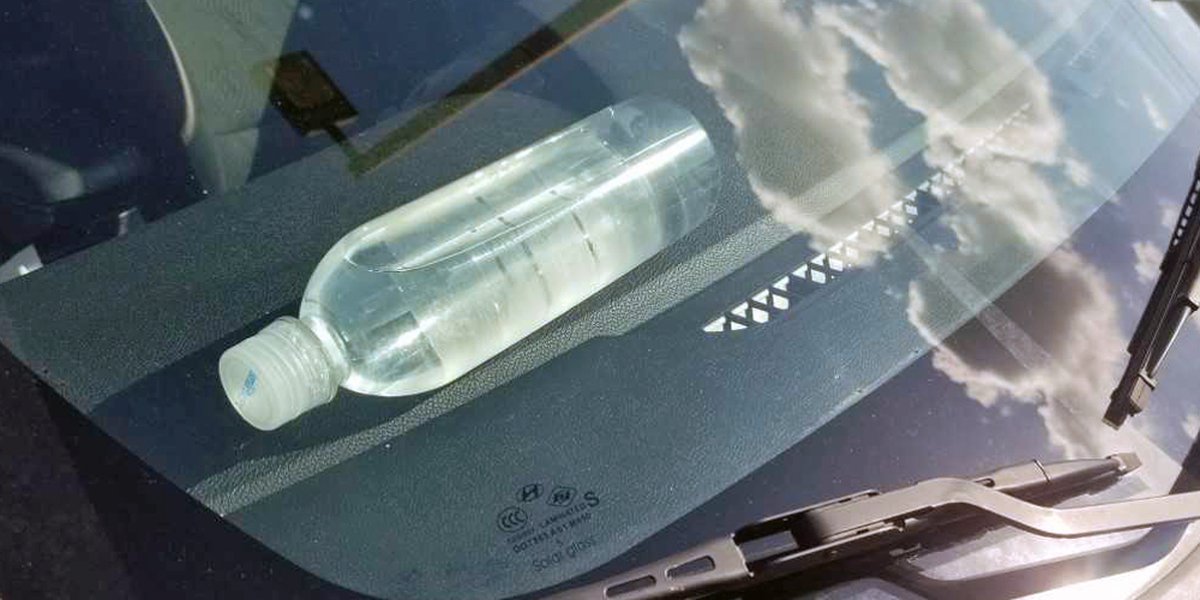The heat is beating us, and bottled waters especially when going outside is a must.
Now, when traveling, how many of you drove around with plastic water bottles in your car?
I’m sure there’s a lot.
If you do this, you may notice that bottled water tastes like plastic after a while.
So today, we’re delving into a crucial aspect of preparedness that might not cross your mind every day: storing bottled water in a hot car.
With this, I hope you’ll gain insights into the potential risks, best practices, and smart strategies to ensure your emergency water remains safe and reliable.
Risks of Storing Water in a Hot Car
Now, let’s talk about the elephant in the room: the intense heat of a car on a scorching day.
While it might seem convenient to stash bottled water in your vehicle, the truth is, high temperatures can be a real threat to the quality of your stored water.
Plastic bottles can release harmful chemicals when exposed to heat, potentially compromising your water’s safety. Additionally, extreme heat can weaken the integrity of plastic bottles, leading to leaks or breaks.
Choosing the Right Bottled Water
Not all bottled water is created equal.
When selecting water for storage, opt for bottles made from materials specifically designed to withstand heat.
Look for bottles that are BPA-free and labeled as suitable for high-temperature environments.
Always check expiration dates and ensure the seals are intact before storing the water as well.
Preparing Water for Hot Car Storage
Here’s a handy tip: don’t fill your water bottles to the brim.
Leave some space to accommodate expansion as the water heats up.
This simple practice can prevent distortion and potential leaks in the bottles. It’s a small step that can make a big difference.
Proper Container Selection
Another tip is to invest in containers that are up to the task.
Choose BPA-free, food-grade containers that are proven to hold up well in extreme conditions.
These containers are designed to keep your water safe from potential chemical leaching.
Mitigating Risks with Insulation
Imagine this scenario: you’re driving under the scorching sun, and your water bottles are heating up.
What should you do?
To counteract this, consider insulating the storage area within your car. Use insulated bags, coolers, or even reflective windshield shades to shield your precious water from excessive heat absorption.
Also, storing water is not a “set it and forget it” deal.
Regularly check on your stored water to ensure its quality and freshness.
Set up a rotation schedule so you’re always using the oldest stock first and replenishing with new supplies.
Alternatives to Storing Water in a Hot Car
While storing water in your car might seem like a convenient option, there are alternatives that could prove even more effective.
Compact water filtration systems or portable water storage solutions are excellent options to consider. These alternatives can provide you with a reliable source of clean water without the risks associated with heat exposure.
My last thoughts
Water is the elixir of life, especially in survival situations. Imagine finding yourself in an unexpected crisis without access to clean drinking water—it’s a nightmare we all want to avoid. So, staying hydrated is essential to keep your body functioning optimally and maintain your mental clarity.
Storing bottled water in a hot car requires careful consideration. Prioritize using high-quality, heat-resistant containers and leave room for expansion. Insulate the storage area to minimize heat absorption, and don’t forget to rotate your water supply regularly.

